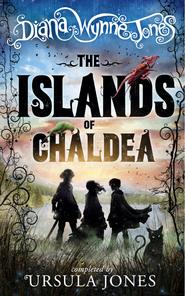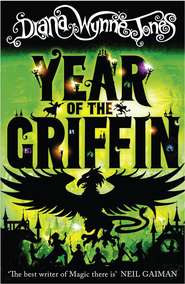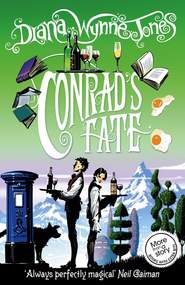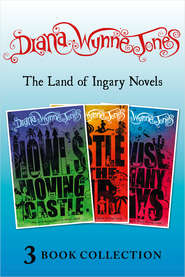По всем вопросам обращайтесь на: info@litportal.ru
(©) 2003-2024.
✖
Wilkins’ Tooth
Настройки чтения
Размер шрифта
Высота строк
Поля
“Please,” Jess added.
Biddy, smiling and shaking her head, began shuffling back into her hut. “I’m sorry, my dears. It’s none of your business.”
“You’re wrong,” said Jess. “It is our business – exactly. Please take it off.”
Biddy stopped for a moment, in the doorway of her hut. “Then, if it is your business,” she said briskly, “I suggest you give me a wide berth, my dears. It would be wisest. Because, I assure you, Jenny Adams is not likely to walk freely until she has her heirloom in her hands. Which, in plain language, is Never. So I suggest you leave the matter there.”
Biddy shut the door of her hut in their faces with a brisk snap, and left Frank and Jess staring at one another.
Chapter 3 (#ulink_fcffc9b4-7fc1-53af-bd55-5de716e71b58)
The first thing they did was to get themselves out of Biddy’s bare patch and back to the path again. There, halfway to the footbridge, Jess stopped.
“How awful!” she said. “How terrible! Oh, Frank, Biddy Iremonger must be quite, quite mad after all. She ought to be put in a Home.”
Frank did nothing but mumble. His skin was up in goose-pimples all over and he did not trust himself to speak. All he wanted to do was to go away quickly. He hurried on along the path towards the bridge.
Jess followed him, saying, “Of course, she may have been having us on. Mummy says she’s got a strange sense of humour.”
Frank again said nothing. It seemed plain enough to him that Biddy had meant what she said and, if Biddy believed herself to be a witch, he could hardly blame the Adams girls for thinking so too. Mad or not, it did not seem to matter. Perhaps witches were mad, anyway. What did matter was what they were going to tell Frankie and Jenny, because it looked as if Own Back had let them down. He was wondering just what they would say, when Jess grabbed at his arm.
“Oh, dear! Listen, Frank.”
There were voices, distant, but getting nearer, loud and crude, and the sound of wheels and sticks. Buster Knell and his gang were in the field on the other side of the river somewhere. Jess and Frank bundled along to where the bridge began. The river took a bend here, which allowed you to look up along the opposite bank. There, they could see the gang coming along the bank towards the bridge in a noisy group, about twenty yards above Biddy’s hut. They could hear, not clearly, orange and purple language.
Frank slid quickly down the bank beside the bridge, where there was a tiny beach of gravel. He was hidden there by a bush and some newly-sprouting flags, but he could see Buster and the gang. Jess hesitated, and then followed him. They crouched side by side, watching the gang come nearer.
“But it’s all right,” said Jess. “They’ll not dare lay a finger on you, Frank, after Wilkins’ tooth.”
“That’s what you think,” said Frank. “I’m not taking any chances.”
“They’ll come over the bridge, though,” said Jess. “Hadn’t we better go across first? Otherwise, they’ll be between us and the Adams’ house, and then we’ll have to go back past Biddy’s hut and I don’t think I can bear to.”
“Shut up,” said Frank. “I bet the Adams kids went past it. If they can, you can.”
“Between the Devil and the deep blue Buster,” said Jess. “Oh dear!”
To their intense relief, the gang turned aside when they were about ten yards off, and went calling and cursing and splashing down into the river. It seemed they were going to ford it. Maybe it was more manly or more exciting, or both, that way. Jess and Frank waited agonisingly, until the smallest boy, in the last go-cart, had been, with cursing and tremendous difficulty, lugged through the water and on to the bank out of sight. Then they stood up and sprinted over the bridge and out into the field beyond. Halfway to the bare, lonely Adams house, they looked back. The gang appeared not to have noticed them. They were milling about in the bushes and rubbish just above Biddy’s hut, and no one was looking their way. Rather nervously, Frank and Jess followed the path over to the peeling door in the side of the cheese-coloured house, and knocked.
The door was opened, after a lot of hollow-sounding treading about, by a thin, tall, vague-looking lady in a dangling smock. Jess at first thought the lady was covered with blood. Then she saw it was only paint. There was paint on the lady’s hands too – so much, that the lady did not seem to be able to touch the cigarette she had in her mouth. She talked round it, through puffs of smoke, and the cigarette wagged.
“What do you kids want, eh? No jobs going, I’m afraid. Bohemian household and all that.”
“Could we see Frankie and Jenny, please?” asked Jess.
“Oh, yes. Sure. This way.” The lady left the door open and simply walked away inside the house. Frank and Jess, a little doubtfully, stepped inside and followed her down a cold stone passage smelling of mildew and lamp oil. They could not tell which smell was the strongest. Jess thought mildew, and did not wonder that Jenny had rheumatism. Frank thought lamp oil. There seemed to be no electricity in the house.
The lady pushed open a door. “Frankie. Friends for you,” she said. Then, with her cigarette still untouched and wagging, she went off into another room. Before the door to it shut, Frank glimpsed an easel, with a painting on it.
The two little girls were in a small room that smelt, distinctly, more of mildew than of oil. There were toys about, so it must have been a playroom. But it was, Jess thought, almost as cheerless as the potting shed, and certainly as dark. The reason for the darkness was that outside the window stood a great wooden millwheel, so old that grass grew on it in clumps, and so big that very little light got past it into the room.
Frankie bounded to meet them looking so excited that Jess felt mean. “What happened? What did you do to her?”
“Nothing yet,” Jess said awkwardly.
Frankie just looked at her, with her great big famine-eyes. Jenny, who was crouched up on the windowsill, said, “I knew you wouldn’t. Nobody dares to.” She was not jeering. She just said it as a matter of fact, rather sadly. She made Frank feel terrible – even worse than Jess was feeling.
“This is – this is a sort of progress report,” he said. “We saw her, and she said she wouldn’t take it off you. That’s as far as we’ve got.”
Frankie leaned forward, with her eyes bigger than ever. “Then go on and do something awful to her. Now you know.”
“At least you didn’t let her deceive you,” said Jenny. “Lots of people won’t believe she’s a witch, but that’s just because she looks jolly and they think she’s joking.”
“But she isn’t joking,” said Frankie. “She’s wicked. Really.”
Somehow, now they had talked to Biddy, Jess and Frank found this easier to believe. Jess still knew, somewhere in the back of her head, that Biddy must simply be mad, but she did not know it strongly enough to say so. All she said was, “Yes, I know. She said she’s got it in for your family.”
Both little girls nodded. “Yes, she has,” Frankie said. “So now do something.”
“All right,” said Frank, “but—” he hesitated, and then said, in a rush, in a rather official-sounding voice, because he felt so mean—“but we’ve got to do it on conditions, because we can’t take your sovereign.”
The little girls stared. “Why not?” said Jenny. “It’s worth much more than a pound.”
Jess saw the point. She shook her head firmly. “It’s not legal tender,” she said. She was not quite sure what that meant, but she was sure it was the right phrase, and it sounded beautifully official. Frankie and Jenny were impressed by it, and stared mournfully at her.
“So we’ll do something to Biddy,” Frank went on pompously, although he was out in goose-pimples again at the mere idea, “if you promise us to stop calling names after – what’s his name, Jess?”
“Martin Taylor,” said Jess.
“Who?” said Jenny.
“Ginger,” said Frank. “Up at the big house. You know.”
“Oh, him!” Frankie stuck her head up.
Jenny leant forward indignantly, and nearly overbalanced from the windowsill. “We hate him. He’s horrible. He lives in our house. It should be our house, but he lives there just because we haven’t got any money any more.”
“We’re going to drive him out,” said Frankie.
“Don’t be silly,” said Jess. “You can’t drive him out, because it’s his parents, not him, the house belongs to. He can’t help living there. It’s not fair to go calling him names. He isn’t allowed to hit girls.”
Jenny grinned. She looked like a wicked elf-thing, all curled up on the windowsill. “We know he can’t,” she said.
“He calls us names too,” said Frankie. “And we’re not going to stop. So there.”
Jess immediately marched away to the damp door. “All right. Then we’re not going to do anything to Biddy. We wouldn’t touch her with a bargepole. So there.”
There was a painful silence. Jess opened the door and tried to go through it slowly, without looking as if she was waiting. Frank loitered after her. Still neither of the little girls said anything. Frank and Jess had gone most of the length of the stone passage before there was any sound at all. Then, suddenly, behind them, they heard rapid footsteps – light, heavy, light, heavy. Jenny, down from the windowsill, was following them as hard as she could go.











